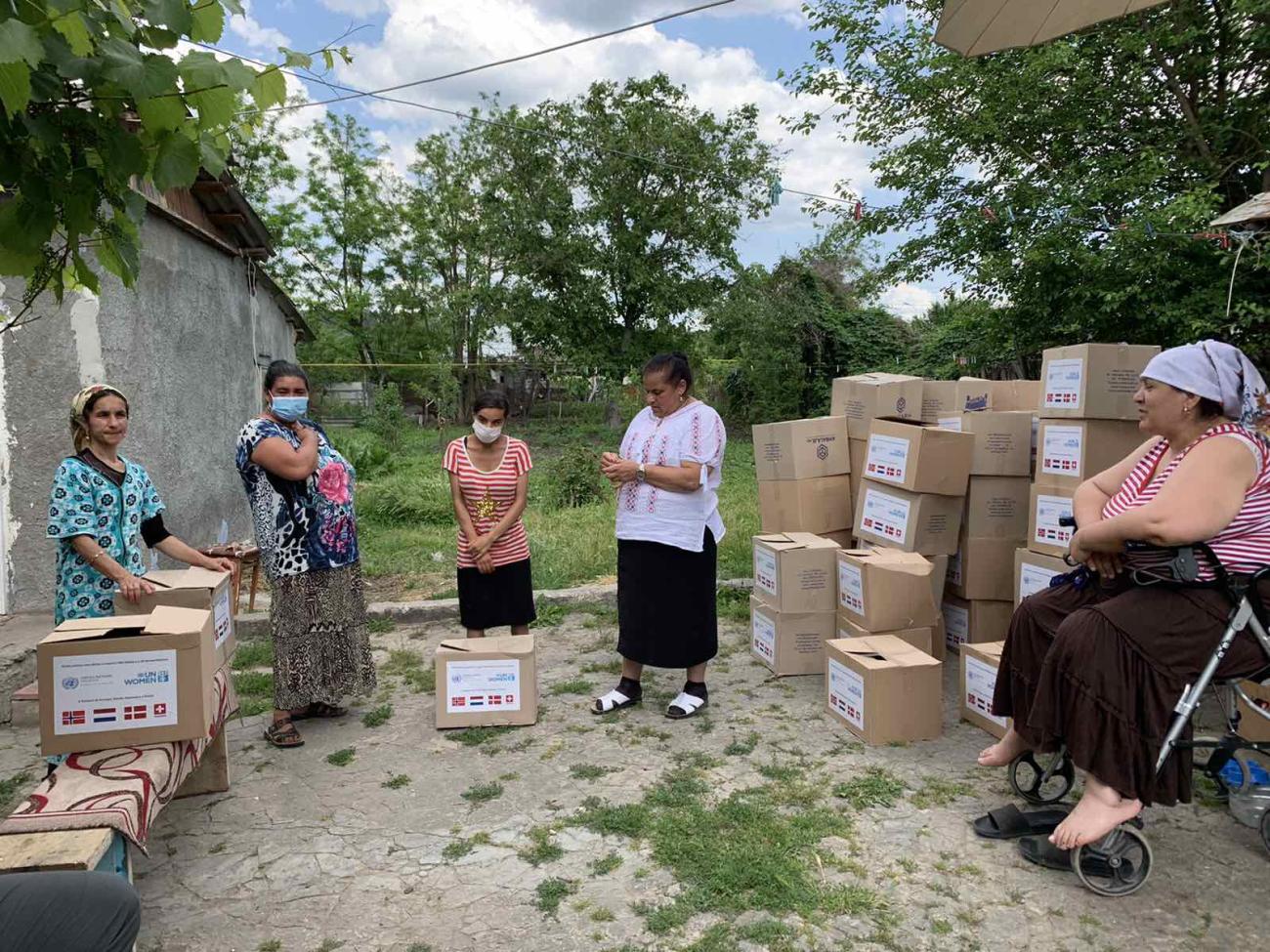They are often excluded from decision-making processes, have limited access to development benefits, their fundamental human rights are violated having limited access to healthcare, education, social assistance, employment services, etc.
COVID-19 pandemic subjected this category of persons, already exposed to vulnerabilities, to an additional socio-economic marginalization, the discrimination being felt stronger than ever during the pandemic crisis.
'Before the pandemic, Roma people had some jobs, some were trading, some were cleaning, but once the pandemic hit, many were left without jobs, and the discrimination against our community has grown even more', said Vasilisa Avtutova, a volunteer and recently the Coordinator of the Roma Women Empowerment Subdivision within the Association of Roma from the Transnistria region.
Vasilisa Avtutova is a Roma woman who lives in Bender. In her daily activity, she dedicates herself to support Roma community from the Transnistria region. She is a volunteer in the Roma Association from the region named 'Cortul de pe Nistru' (Tent on Nistru River), where she helps solve the issues of the community and supports its most vulnerable members.
Difficulties in finding a job, lack of documents and education, discrimination and difficult living conditions - are just some of the issues faced daily by Roma community, which became more stringent during the pandemic.
With the assistance of non-governmental associations, UN Moldova has succeeded to reach persons from vulnerable groups, following the principle of leaving no one behind. During the pandemic, the Roma community from the Transnistria region received humanitarian aid through the UN Trust Fund of Partners, implemented by UN Agencies: UN Women, UNICEF and IOM. Social aid included two packages, one with food products and one with hygienic and household products.
Vasilisa Avtutova said that all those who could not survive without aid during the pandemic received assistance. 'We helped the persons with disabilities, elderly and young families with many children from our Roma community. No matter whether this was woman or man, we helped everyone who needed assistance', she said serenely.
In the Transnistria region, according to local NGOs, during the lockdown, most social services were stopped. The only social support available to vulnerable people was provided by volunteers and NGOs.
Vasilisa was one of those persons who went to people's houses to deliver food packages' I work mostly with people from Bender, where I come from. I help them with what I can, I go to them voluntarily, I do not expect anything in return; I just want to help them. There is a man who had two strokes; he has nothing. His entire pension is spent on medicines, and he has nothing left for food and hygiene products. He was so happy to receive food and hygienic packages'.
Thanks to early identification of persons affected by the pandemic and their needs, conducted jointly with the support of UN Office for Human Rights in Moldova, overall, during the pandemic, over 500,000 vulnerable and marginalized persons received shortly assistance to be able to cope with the impact of the pandemic and the new challenges/difficulties.
Long before the first case of COVID-19 was registered in our country, the UN Moldova had an efficient and ongoing communication with the state authorities, providing immediate support to the country to fight with the new coronavirus and cope with the new challenges. At the same time, by anticipating the effects of the pandemic and imposed restrictions, the UN team developed a COVID-19 Socio-Economic Response and Recovery Plan based on conducted evaluations. The Plan contains more than 99 actions/projects that provide immediate and medium-term support with a special focus on vulnerable and marginalized persons and groups, as well as persons that risk to be left behind.




